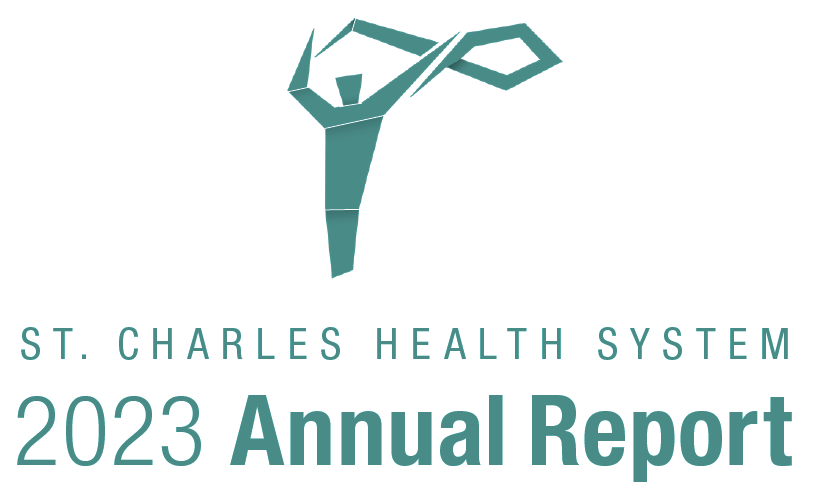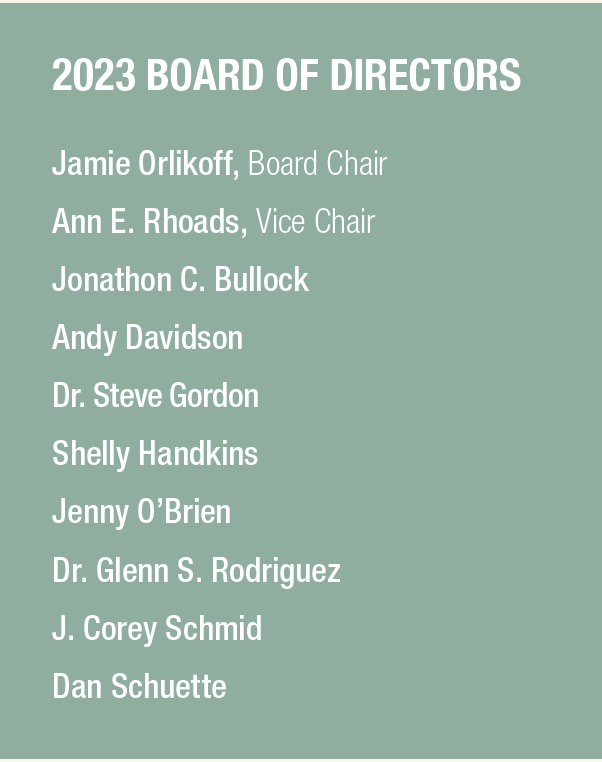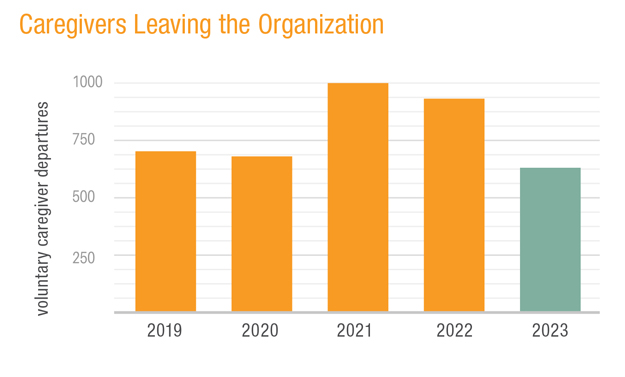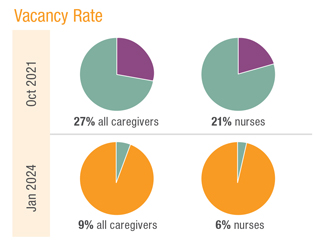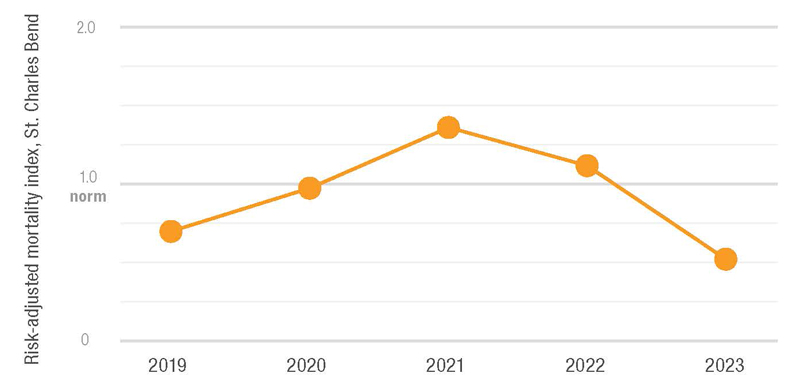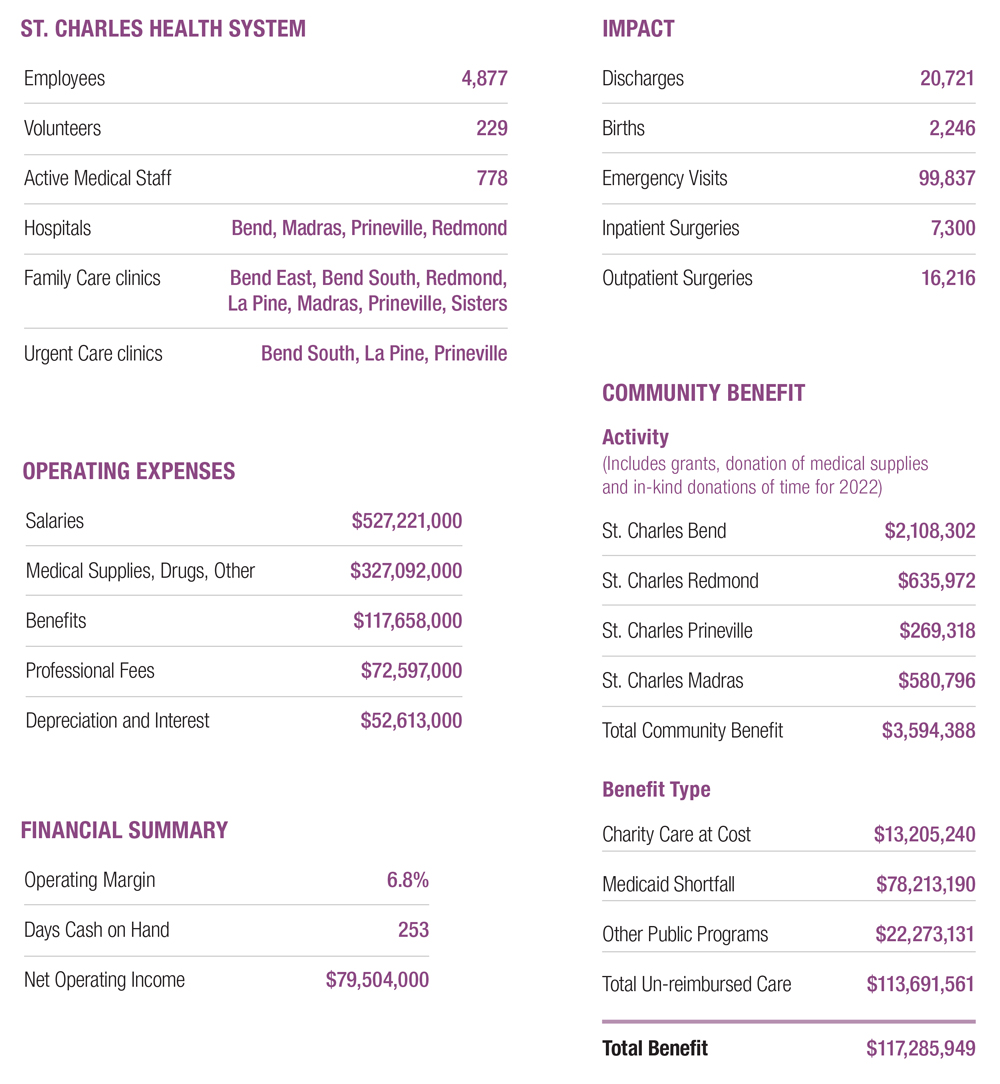Once a patient is diagnosed with cancer, a clock begins ticking. Every moment that passes between a doctor creating a treatment plan and when treatment begins can be agony for patients.
“In addition to the emotional toll — the fear and anxiety — we know that at some point, delays in treatment can also lead to worse health outcomes for patients. Every day matters when it comes to treating cancer,” said Dr. Linyee Chang, senior medical director for Cancer at St. Charles. “Reducing the time that patients spend in limbo — between diagnosis and treatment — is what makes us so excited and hopeful about the new instant approval process that started in January.”
The new pilot is an innovative arrangement between PacificSource and St. Charles that allows patients who are receiving treatment that follows national best practice guidelines to receive automatic insurance approval with no delays. (About 93% of all care plans at the St. Charles Cancer Center are guideline-adherent; the exceptions are those rare or complicated cases where definitive research doesn’t yet exist.)
This pilot developed out of concerns raised by providers and patients about delays related to pre-authorization with health insurance companies and especially Medicare Advantage plans. Typically, when a patient receives a cancer treatment plan from a physician, St. Charles financial advocates then reach out to insurance companies for approval. No treatment can begin until the plan is OK’d by the insurance company — and that can take days or sometimes even weeks to approve.
The instant approval process is working to reduce delays for patients. Since January, 93 patients have been part of the pilot program. Of those, 82% received authorization to begin treatment the very same day, compared with just 54% of patients on other insurance plans. And Chang expects to see these numbers improve as the program is more established.
“Sometimes with the instant approval, we get insurance confirmation on the same day,” said Hidie Baker, financial advocate for St. Charles. “I do a happy dance as soon as I get one approved because I know I’m making a difference in helping the patients out.”
For St. Charles President and CEO Steve Gordon, the results of the pilot program are gratifying.
“Last fall, we made a point to publicly call attention to the delays and administrative burdens we were experiencing with many Medicare Advantage plans. Now we are seeing a creative solution put into action that benefits patients that is a direct result of us raising those concerns,” Gordon said. “This is a story of the waste and barriers we experience and how some health systems and hospitals are working to do something about it.”
National standards
One of the reasons this program is possible, according to Chang, is because the St. Charles Cancer Center has worked diligently for 20 years to drive clinical excellence through protocols, processes and practices to build a world class cancer center. The cancer center follows National Comprehensive Cancer Network guidelines, which are standards created by 33 academic cancer research centers across the nation.
“These guidelines form the foundation for our quality program, and they became our standard of care in 2004,” said Chang.
NCCN guidelines designated as 1 or 2a mean that more than 85% of experts agree that the treatment is a best practice. This is critical for the instant approval process, as patients whose treatment plans include 1 or 2A guidelines are automatically approved and don’t require an independent review.
“This removes a lot of waste for our staff, but the biggest improvement is for patients,” said Mari Shay, service line administrator for Cancer Services. “A patient can come in on a Monday, receive a plan for radiation and leave with a schedule in hand to start the next day. It’s life-changing. And because St. Charles Cancer Center follows NCCN guidelines, patients are assured that it’s the best care.”
Both Chang and Shay are hopeful that this program will prove successful and grow.
“Our goal is to expand this program. We have built it with expansion in mind. We want all of our St. Charles cancer patients to have this fast-track option available,” said Chang.
Dr. Mike Hatch wishes an instant approval process had been available for his family last year, when his 30-year-old sister-in-law was diagnosed with stage 3 breast cancer.
“The oncologist with whom we met told her, ‘I would like you to have started chemotherapy yesterday,’” said Hatch.
But from the time she received her diagnosis to the time she started treatment, about three weeks elapsed.
Hatch, an anesthesiologist, noted that most of the patients he works with are undergoing elective surgery, in which timing is not always paramount. He was not prepared for the urgency that came with a cancer diagnosis. “We learned that a cancer diagnosis and the daunting treatment course to follow is thrust upon a patient with a timeline that can feel pretty terrifying. It wasn’t until that moment of diagnosis that we came to fully understand the urgency of it and the number of hurdles we would need to clear as a family to initiate treatment. Every day that passed on the calendar felt like another day that we could be a day late.”
Hatch says his sister-in-law is halfway through chemotherapy and the family is feeling hopeful about her progress.
“From my perspective, if a patient can get to appropriate care even one day sooner, it would offload an enormous amount of anxiety and worry. I am grateful to St. Charles for making this a priority and I’m equally excited for the patients whom this will benefit.”

